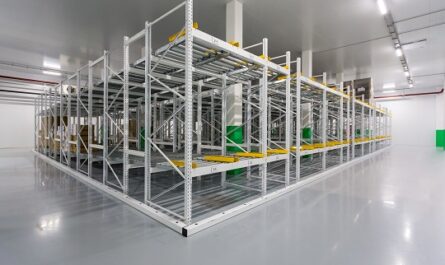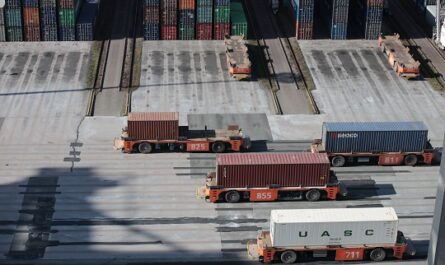Those of you who have switched jobs more than once know that you don’t always get a well-developed team. You’re lucky if you get it. But if you get a team that isn’t well-developed yet, you’re still lucky because you can use your skills to build it up.
How important is it to help people grow, and what will happen if you don’t?
In this post, we’ll talk about that.
But before you do that, make sure you’re also part of the scmguide telegram channel, where I share a lot more information about supply chain management.
Table of Contents
6 reasons why it’s important to develop people in supply chain management
I mean all kinds of people development when I say “people development” here, whether it’s training, mentoring, coaching, or something else.
Now, the question is why people development is so important in supply chain management.
Planning is important for supply chain management
You must know that supply chain management requires a lot of planning.
Starting with the plan for when materials will arrive, the plan for production, the plan for distribution, and the plan to increase capacity, for example in the factory or warehouse.
All of this needs people who can think ahead a long way. They have to know where they want the company’s supply chain to go, what conditions they want to reach, what to do, what risks could happen, and how to deal with them.
To be able to do this, you need people who really know how their current supply chain works and how far away it is from what they want it to be.
And here, growth isn’t just about getting better at hard or soft skills; it’s also about shaping a way of thinking that must be done over time.
Supply chain management needs to analyze
A supply chain operation has a lot of problems. You can’t avoid it.
Before you can find the right solution, you need to know what the problem is really about. Don’t let you make a bad choice that will cause you to lose more.

Your team needs to learn how to analyze how things are going in the supply chain right now. They must be able to tell what went well and what needs to be changed.
You might also like:
- 6 Effective Stocktaking Steps For More Accurate Results
- Everything You Need to Know About Plastic Pallets: Types, Uses and Benefits
Problems need to be solved in supply chain management
After the problem’s cause has been found, steps need to be taken to fix it and keep it from happening again.
It’s important that your team can come up with the right answer. They need to know what other options they have to solve the problem at hand, as well as how the solution affects other parts of the supply chain.
To come up with the right supply chain solution, you need to have insight, knowledge, and maybe even enough experience. You have to give that to your team.
You have to get your team to be part of the solution, not the problem.
Execution is needed for supply chain management
All plans and solutions won’t help if they aren’t put into action.
And this execution can be hard on its own because it will involve a lot of other tasks.
In this case, your team will need to be able to carry out a plan for a supply chain.
Because of this, you need to make sure that your team can both plan and carry out its plans. Because this ability will affect how well the supply chain works as a whole.
Supply chain management needs project management
Some solutions take more time to put into place. Most of the time, this kind of solution will be a project. And a project needs project management.
Your group needs to get better at this one thing. How to run a project from the beginning to the end. This includes how to keep the project within the set budget.
People skills are needed for managing the supply chain
Management of an organization’s supply chain involves many different tasks. Everything that seems easy on paper isn’t always easy to do in real life.

Why?
Because every job in the organization is done by many different people with different interests and ways of thinking.
Getting different kinds of people to work together toward the same goal is, of course, very important here. Very needed.
What happens if you don’t work to improve the skills of your team?
People development is important for the reasons I listed above. If you don’t do this process, there will be bad things that happen.
Let’s see.
Disrupted supply chain operations
The first effect is that your supply chain will be messed up.
Problems can come in the form of late materials, production that doesn’t match sales needs, which leads to overstock, a lack of materials for production, late delivery to customers, or other issues.
You might also like:
- Why You Don’t Always Need to Check On Hand Stock
- What Should You Do When You Achieve Your Production Target Faster
Calculations and decision making gone wrong
For many decisions in the supply chain, you need accurate data. And, of course, there will be a lot of calculations and simulations to do with the data.
If there are mistakes in getting and calculating data, supply chain decisions will also be wrong.
And sometimes the bad effects can be so bad that they hurt the business.
From time to time, nothing gets better
Your team will only do as good a job as they can. If they don’t get better over time, the results they get will also stay the same. There’s no growth.
They don’t know what to do to get better results, which is one reason.
And this is also true for you. If you don’t get better over time, it’s more likely that the rest of your team will.
Use your time
When your team doesn’t have the skills they need to do their main jobs, they will ask you more questions and look to you for guidance. If they are doing this to get better, there is nothing wrong with it. But if they don’t, it will just waste your time that you could spend on more important tasks.
What to do to help the team do better?
Once you know where your team is now, you can work on making them better.
Here is how.
Make a plan to improve your skills
Make a list of the skills you need for each task. Then compare that to what your team can do now. That’s the difference you need to make up.

You should start making a plan for how and when you will improve your skills over time based on how important they are.
It can come in many different forms, such as training, mentoring, coaching, or something else.
Develop a mindset
I think this is the most important thing. Everyone on the team needs to have the right mindset.
For example, SCM isn’t about departments anymore; it’s about the whole supply chain. So they shouldn’t have separate ways of thinking about each department because everything is linked.
Also, teach them to always want to learn new things and improve their own skills. So, they would always be looking for ways to get better at what they already do.
Improve both hard skills and soft skills
So many people will be involved in SCM. Which, of course, means being able to get these people to work toward the same goal.
One of the skills needed here is the ability to work with other people.
You can’t just focus on making your team better at hard skills by, for example, having them compete with supercomputers. But they should also work on their soft skills so that what they write down can be put into action.
Be patient
It takes time, work, and thought to get better at that. So you’ll have to wait. Every time, enjoy the process.
It might seem hard at first, but the results will be worth it.
Conclusion
Having a strong and skilled team will make your work in supply chain management much easier.
But not everyone is lucky enough to get such a team. Most teams still need to be put together and built up.
You have to do that.
A good leader is one who can make other people into good leaders. This is what you need to keep in mind.
Hope it helps!
You should also tell your other coworkers about this article so that they can get the same benefits as you. You can learn more about supply chain management by joining the scmguide telegram channel. You can use any of the articles on this blog for any reason, including making money, without having to give credit.

 by
by 

